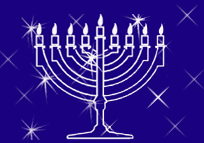A group of Fellows organized ourselves and scheduled a time to have a weekly conference call, every Friday morning. Each Fellow took turns preparing a lesson, sending it to everyone through e-mail, and leading that lesson during the call. Topics included Kashrut, Freewill vs. Fate, War and Peace in the Jewish Tradition, and many others. This was not only a great way to learn, but also a great way to build community. Below is the lesson that I prepared for the group to learn.
WAR AND PEACE
Sarahs little disclaimer:
Hey. So, the war has been on my mind a lot, as Im sure it is for most of you. And while I do not at all want us to get into a debate about wither we support the current war with Iraq or not, I do want us to talk about war and peace and what some traditional Jewish perspectives on those subjects are. I need to be thinking about war and peace right now, but I want to do it in a way that is safe and informative and gives me and my community another filter when examining everything for ourselves. Talk to you all on Friday.
Overview: Peace & Nonviolence
The Hebrew word for peace, shalom, denotes a sense of completion, perfection--shlemut. In fact, in the Bible, shalom means "well being" or "prosperity," not just "peace."
Thus, in Judaism, peace is not only the opposite of war; it is an ideal state of affairs. In this sense, peace--perfection--is something that will not be totally achieved until the messianic era. When the Messiah comes, "nation shall not lift up sword against nation, neither shall they learn war anymore" (Isaiah 2:4), but this will be part of a general societal harmony and perfection. In the Talmud, peace is one of the most esteemed values.
Peace in Jewish Law and Theology
And yet, Judaism is hardly pacifistic. There are clearly times when Judaism permits, and even requires, war. Jews have on occasion embraced nonviolence, even martyrdom, as a response to conflict, but not out of a sense that violence is categorically inappropriate, rather because in those situations nonviolence was the best tactical option. Nonetheless, the minimization of violence is certainly a Jewish value.
Avoiding Conflict and Violence
Indeed, when war is declared, the Torah requires that peace be offered prior to commencing an attack. "When you come near to a city to fight against it, then proclaim shalom to it" (Deuteronomy 20:10). Admittedly, in this context, shalom means something more like "submission" than "peace." Nonetheless, biblical morality opposes a violent solution when a nonviolent solution is possible.
Also, permitted wars do not trump obligations to fulfill commandments, and thus one is not allowed to begin a non-commanded war (i.e., any war that is not either defensive, or against the seven nations of biblical Israel or the biblical nation of Amalek) unless it is probable that commandments will not need to be transgressed. This is hardly feasible (imagine a war that takes a break every Saturday!).
Overview: Combat and Conflict
Deuteronomy chapter 20 is the starting point for all Jewish discussions about war. It is part of Moses' final speech to the Israelites and is meant to prepare them for the imminent battles with the nations of Canaan (biblical Israel) as well as their future enemies. The chapter includes an assurance of divine support, a list of those exempt from combat, the requirement to offer peace before attacking an enemy, and other rules of war. The rabbis of the Mishnah (Sotah 8:7; Sanhedrin 1:5) later elaborated on these rules and in doing so distinguished between two types of wars: commanded wars (milhemet mitzvah) and permitted wars (milhemet reshut).
Though there is some ambiguity on the matter, generally speaking, commanded wars refer to wars against the seven nations that originally inhabited Canaan and against Amalek (the nation that attacked the Israelites as they departed Egypt). Permitted wars are expansionary wars undertaken by Jewish kings to secure their boundaries or increase their glory.
According to almost all traditional authorities, the category of commanded wars is no longer relevant. The seven nations of Canaan, as well as Amalek, are considered extinct or unidentifiable. In addition, commentators such as Nahmanides (1194-1270) believed that even the seven nations were only to be fought if they retained their idolatrous practices. This further neutralizes the possibility of invoking a commanded war, as Islam (according to Maimonides [1135-1204]) and Christianity (according to the Me'iri, Rabbi Menahem ben Solomon, [1249-1316]) are not idolatrous religions.
The issue of attacking noncombatant civilians (tohar ha'neshek--purity of arms--as it is called in Israeli military discourse), for example, is virtually ignored in the Jewish legal tradition (though the second-century Jewish philosopher Philo does mention a prohibition against such conduct). That being said, it is clear that ethical considerations were part of the development of Jewish laws of war.
Questions:
1) What is the Traditional Jewish understanding of peace (Shalom)?
2) What value is placed on perusing Shalom?
3) What are the Traditional Jewish categories or war?
4) Are these categories of war still relevant in this time period?
5) Can we expand these categories of war to encompass modern warfare?
6) How would the Torah and the Talmud classify Americas current war?
7) Is there relevance in examining Americas current war with a Torah/Talmud lens?
8) Does studying the Traditional Jewish conceptions of war and peace help us, as Jews, better understand the world we live in?



